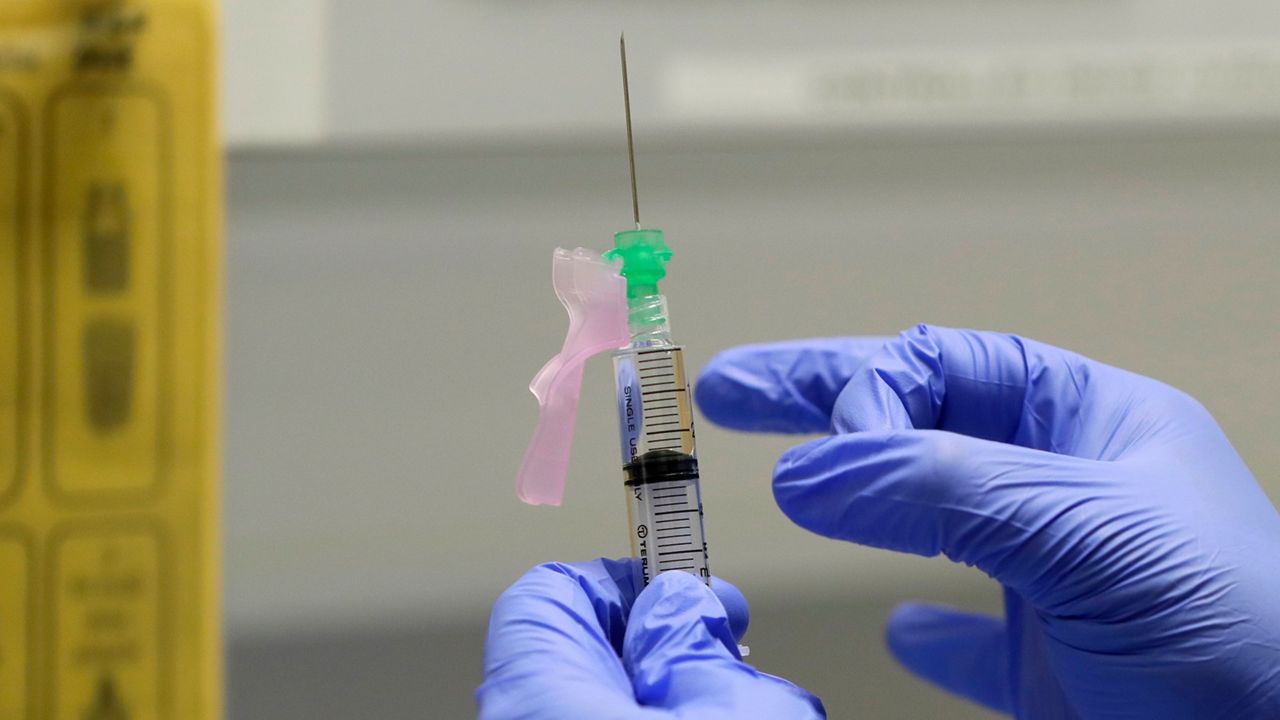MILWAUKEE — As the race to develop a safe and effective COVID-19 vaccine continues, states are planning out how they’ll get these doses into the arms of their residents.
The Wisconsin Department of Health Services published a summary of its vaccination plan at the end of October, laying out some additional details on how the vaccine will be distributed — and who will get priority. Here, we break down some of the information included in their plan.
When will a vaccine be available in Wisconsin?
The plan projects that some limited vaccine doses may be available in late 2020, with more expected to flow in during 2021.
Dozens of vaccine candidates are currently in some stage of human trials, although some promising late-stage studies have been delayed a few weeks after facing potential safety concerns. Infectious disease expert Anthony Fauci said this week that it’s hard to know when doses will be available: “Could be January, could be later,” he said in an interview.
Whenever a vaccine is approved by the FDA, the number of doses sent to Wisconsin will depend in part on “current disease prevalence and/or local spread,” the Wisconsin plan states.
Who will get vaccinated first?
Since there likely won’t be enough vaccines to go around at the beginning, the plan splits distribution into three phases.
The first phase, when doses are the most limited, will probably focus on a few key groups: Healthcare personnel who are exposed to or treating COVID-19 patients; those living in long-term care or assisted living facilities; older adults aged 65 and up; and other essential workers.
The second phase will add “other critical populations” and, eventually, the third phase will include enough supply for the general public.
More specific decisions about the priority groups will depend on input from national and state experts, the plan says.
The National Academy of Medicine released its framework earlier this month, giving similar recommendations on who should be first in line — front-line health workers, people with underlying conditions, older adults. Other “critical workers” employed by schools, food suppliers, and public transit services, for example, would follow close behind.
Within each group, the National Academy recommends that “special efforts are made to deliver vaccine to residents of high-vulnerability areas,” like the minority and low-income groups who have been hit the hardest by the pandemic.
Wisconsin’s State Disaster Medical Advisory Committee also has working groups planning for the COVID-19 vaccine. The group’s Ethics Subcommittee has drafted a set of ethical principles to guide priority groups, which include: promoting the common good, unity, equity, respect for persons, fairness, and reasonableness.
“When resources are scarce, there is a mutual obligation to care for one another and to prioritize the common good over individual self-interest,” subcommittee members write.
How will vaccines be distributed?
According to the DHS plan, the federal government will buy up vaccine doses and other supplies to send to providers.
Wisconsin is planning to take part in a “federal pharmacy partner program,” which will have pharmacies administering onsite shots to long-term care and assisted living residents. Local and tribal health departments will also help distribute doses early on, the plan says.
Later on, once more doses are available, other providers — like “commercial pharmacies, health care systems, and individual providers” — will be able to enroll as vaccinators.
The plan points out that multiple vaccines might be in use at the same time, so it’s possible that people will be getting different vaccines. All of them will be fully vetted by the FDA and the CDC committee by the time they get sent to Wisconsinites.
Will I have to pay?
No — according to the DHS plan, the federal government will distribute vaccines at no cost to providers or patients.
Will I need two doses?
Probably. The plan states that “immunity is likely to require two doses of pandemic vaccine,” which have to be administered either 21 or 28 days apart. Many vaccines in late-stage trials — including those from AstraZeneca, Johnson & Johnson, and Moderna — include two doses.
Providers will be responsible for reminding their patients to get a second shot and making sure the two doses match, the DHS plan says.



